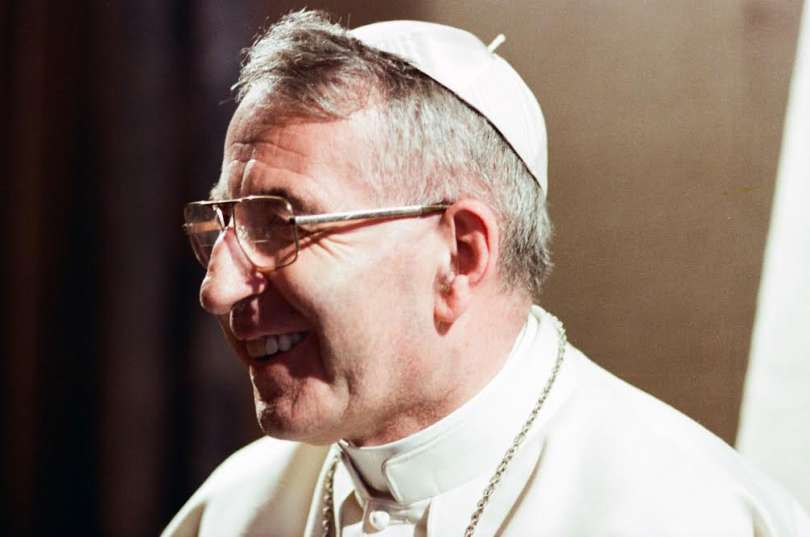José Maria C.S. André
It was just 33 days since Cardinal Albino Luciani was elected as pope to head the Roman Catholic Church when the world was shocked with the news of his demise. Exactly 44 years ago, on September 29, 1978, Pope John Paul I passed away. The previous day, September 28th, had been a busy day as usual for him.
He woke up at 5 am to pray; celebrated the Eucharist; received many people; intervened in many decisions; took some breaks to pray in the chapel and took advantage of the long corridor to walk around. Then, unexpectedly, during the night, he suffered a massive heart attack and died.
It is true that he had fragile health and heart problems, but his intense work pace did not make one think of such an outcome so quickly. In an interview with the Italian periodical Il Sabato, one of the pope’s brothers revealed that Cardinal Luciani had visited Sister Lucia in Portugal where she had prophesized that he would be elected pope and would die soon after. However, it is difficult to corroborate that this incident took place, and in any case, it is not important.
The whole world had watched with surprise the election of John Paul I because the newspapers had prophesied, full of conviction, the possible election of several cardinals but overlooked Cardinal Luciani. The first homilies of the new pope, his catechesis in dialogue with children, the delightful stories he told them, made an impression even in environments far from the Church. After the pontificate of Paul VI, which had increasingly suffered, eroded by a persistent religious crisis and a cruel opposition to the Church, the common people responded to the relaxed and open smile of John Paul I with a warm and spontaneous adherence.
Many began to read the books that Cardinal Luciani had written; in particular, the collection of very original articles entitled To the Illustrious Ones, of fictionalized letters to characters from history and literature. In this entertaining format, one recognizes the depth and culture of the new pope.
Even the papal coat of arms showed his characteristic humor. Since he wanted to continue the work of John XXIII and Paul VI, he added the Lion of Venice (John XXIII’s symbol) with hills (because Paul VI’s surname was Montini which means “mounts”) and some stars (because he was called Luciani which means “lights”).
In a few weeks, some egotistical clerics began to react. With poison and malediction, they attributed John Paul I’s humility to a lack of intellectual preparation. “What will he say, when he has no more children’s stories?”
Obviously, it was impossible to reform the Church in 33 days. Yet that happened because God intervenes in history beyond human possibilities. Cardinal Luciani had valuable written work, but as a pope he did not have time to publish any encyclicals; he left only a few homilies, a few speeches to pilgrims and the catechesis to children. On a human scale, this is very scarce; in God’s hands, it has no limit. In 33 days, a surprising conversion of hearts took place. People who seemed stubborn, opened themselves to grace. We will never really know why.
Throughout the world we have seen miracles of this size, which motivated many bishops to request the opening of John Paul I’s cause of canonization, convinced that he was a saint. John Paul II embraced the proposal in 2003, and the historical investigations and a thorough examination of the entire life of John Paul I began. One of the testimonies heard was that of Benedict XVI, already Pope Emeritus at the time. The second phase consisted of the study of a completely miraculous healing achieved through the intercession of John Paul I which took place in Buenos Aires when the present pope, Francis, was the bishop of the diocese. Finally, the process culminated last September 4th with the solemn beatification of John Paul I at St. Peter’s Square.
It may seem that a few days are not enough to change the world, but God has his own plans. A saint, in God’s hands, is enough.
When John Paul I died, the newspapers reported – again with great certainty – the names of cardinals who were considered frontrunners at the papal conclave. Curiously, they forgot to mention Karol Wojtyla, then Cardinal of Krakow, who also wanted to be called John Paul, in memory of those 33 days that changed the world.


 Follow
Follow


